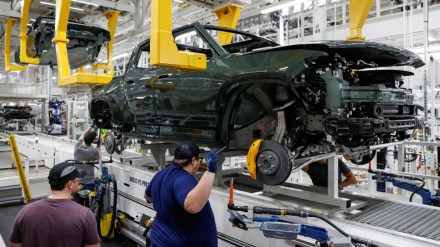The White House is preparing to ease tariffs on the US auto industry and the announcement could come as early as Friday, a Bloomberg report said. The decision could be a major boost for carmakers who have long pushed for relief from steep import duties.
Tariff break for automakers
A Bloomberg report, citing people familiar with the plan, said that the Commerce Department is expected to announce a five-year extension of a rule that allows automakers to lower the amount they pay in tariffs on imported car parts. This rule was earlier set to expire after two years. The announcement can be made on Friday, though past tariff updates have been delayed. The details will be included in official government papers that also confirm tariffs on imported trucks.
This move follows months of lobbying by top US carmakers such as For Motor Co. and General motors Co, as per the report. These companies have face rising costs due to the tariffs that US President Donald Trump placed on imported vehicles, care parts and raw material like aluminium and steel. The expected extension will ease some of that burden.
Following reports of the possible tariff relief, GM shares rose by as much as 3.8%, while Ford and Jeep-maker Stellantis NV also saw gains, the Bloomberg report said.
Carmakers welcome relief amid global competition
Ford’s Chief Executive Officer, Jim Farley, has previously said that Japan’s trade deal with the US gives Japanese carmakers, including Toyota, a cost advantage of several thousand dollars per vehicle compared to American-made cars. This is largely due to Japan’s lower labor and currency costs. Under that trade deal, tariffs on Japanese auto imports were cut from 27.5% to 15%.
Earlier, automakers were allowed to offset part of the 25% tariff on imported parts. Those producing and selling finished vehicles in the US could claim up to 3.75% of the value of their American-made cars as an offset. This benefit was meant to drop to around 2.5% after one year and end completely the following year.
Tariffs and trade policy context
Earlier this year, Trump imposed a tariff of 25% on fully assembled vehicles. However, separate tariffs on Canada and Mexico already included exceptions for vehicles that met the domestic content standards under the North American trade agreement.
The latest tariff extension, if finalised, is expected to provide the auto industry with some much-needed breathing room as companies continue to manage high production costs and compete globally.
